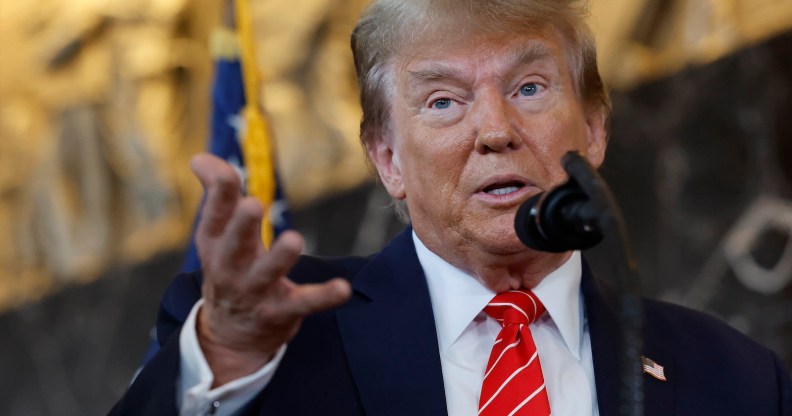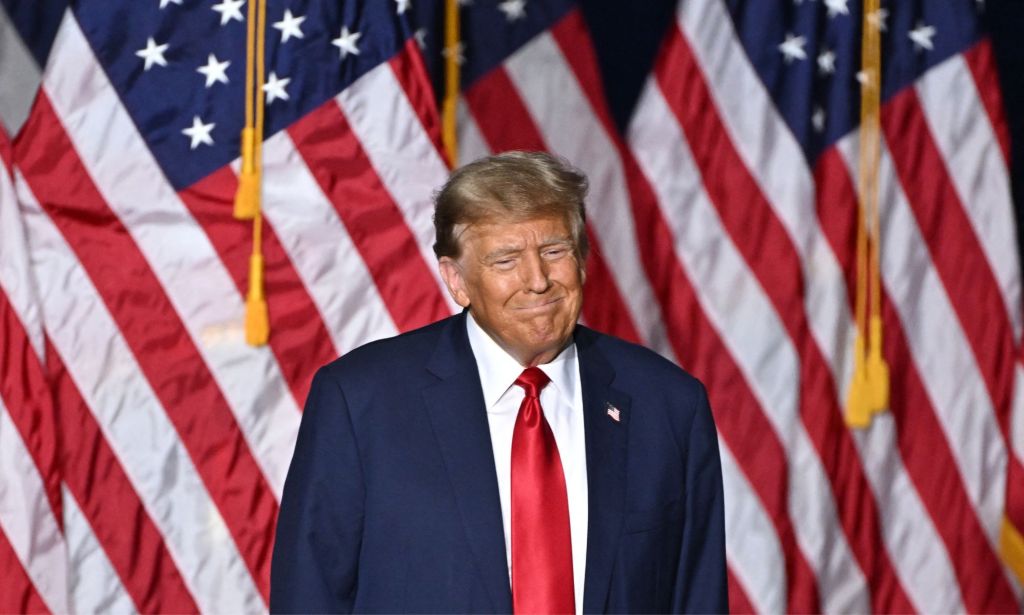Trump does not have presidential immunity in election fraud case, court rules

Donald Trump is currently attempting to secure a second stay in the White House. (Chip Somodevilla/Getty)
Donald Trump does not have presidential immunity and therefore can be prosecuted on charges relating to alleged attempts to overturn the result of the 2020 election, a court has ruled.
The former president had argued that he was immune from prosecution amid a series of ongoing legal cases but a court in Washington D.C. unanimously rejected his claims on Tuesday (6 February).
US special counsel Jack Smith has charged Trump with conspiring to overturn Joe Biden’s victory in the 2020 election, alleging that the current frontrunner for the Republican nomination this year committed fraud to remain in office.
Trump’s legal team originally argued that, while the House of Representatives had impeached him, the same process was never completed by the Senate. They claimed that a president who had not successfully been impeached could not be subjected to criminal proceedings, but this argument was thrown out in December by judge Tanya Chutkan, who wrote that the presidency “does not confer a lifelong ‘get-out-of-jail-free’ pass”.

Now, according to the BBC, the appeals court has concluded: “We cannot accept former president Trump’s claim that a president has unbounded authority to commit crimes that would neutralise the most fundamental check on executive power: the recognition and implementation of election results.
“For the purpose of this criminal case, former president Trump has become citizen Trump, with all the defences of any other criminal defendant.”
Trump campaign spokesman Steven Cheung said that he “respectfully disagrees with the DC circuit’s decision and [Trump’s legal team] will appeal [against] it”, adding: “If immunity is not granted to a president, every future president who leaves office will be immediately indicted by the opposing party.
“Without complete immunity, a president of the United States would not be able to properly function.”
Trump has until 12 February to file an appeal against the ruling, which could then be taken to the US Supreme Court.

